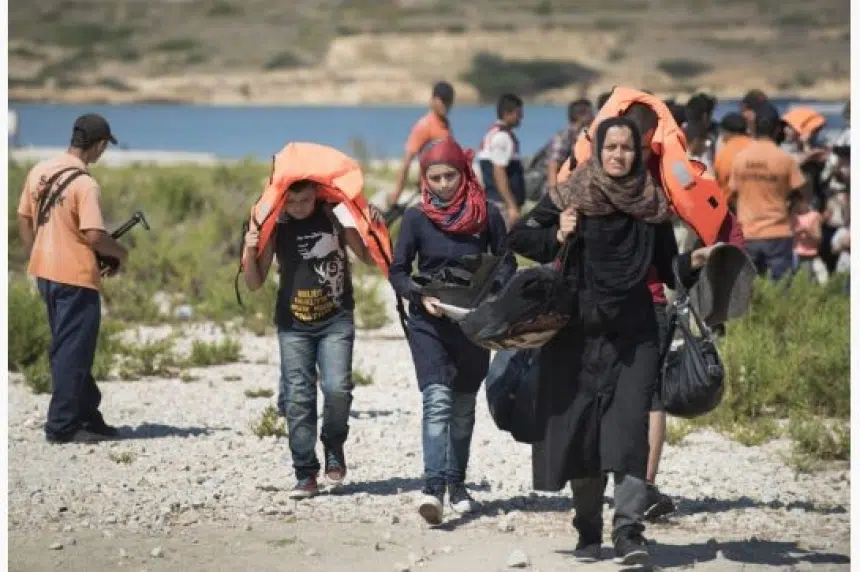Rick Istifo was only a teenager when he decided to flee Iraq with his family during the first Gulf War and embark on a perilous journey to a better life.
Now as hundreds of thousands of Middle Eastern migrants attempt immigrate to Europe, Istifo, 42, is reflecting on his own journey, which ended with a new life in Saskatoon.
“Death was around us many times,” he said. “Many, many, many times.”
Istifo was living in Baghdad for 21 days as coalition bombs rained down on the country. Through some family connections, he was given the opportunity to flee Iraq over the northern border with Turkey, just like three of his brothers had done several years prior.
In February of 1991, Istifo and a group of family members – including six children – started their journey over the mountains led by smugglers. If they had been spotted by soldiers, they would have been shot.
“You walk through the night and your guide is telling you ‘where ever I put my feet, you put your feet behind me’ because there is mines left and right,” he said.
After the mountains, Istifo’s group had to wade across a river to enter Turkey.
“Some people about a week after us, when they came, the water was too high. Some guys thought they could swim through, but the current pushed them over. Nobody saw them again.”
Their guide made promises of United Nations helicopters waiting for them in Turkey, which would take them to the United States and Canada. Instead, they were found by Turkish government soldiers, who sent them to a refugee camp near the city of Van.
Istifo describes staying in something akin to a hotel room for the next six months. His passport was taken and he wasn’t allowed to leave, even as more and more people filled the tiny room. Husbands and young men were separated from their families for months at a time, and beatings by soldiers were commonplace, he said.
What’s more, they lived under the constant threat of being sent back to Iraq.
Istifo and his group were finally allowed to leave when the refugee camp was about to be shut down. He said even then, it was a struggle living in a foreign land and not speaking the language.
While living in Ankara, “I went to ask a restaurant guy, I didn’t even know the word ‘water’, and when I asked him about water, he just kind of kicked me out of there, said ‘get out of here, I don’t have any water for you.’”
It would be another year and a half before Istifo would get to Canada. He arrived in January of 1993.
“We lived through that, it was horror definitely,” he said. “I wish (the Syrian migrants) could all have a successful life like what we did.”
According to new figures by the International Organization for Migration, over 332,000 migrants have crossed the Mediterranean Sea this year to reach Europe. At least 2,636 people have died in the attempt.
With files from News Talk’s Lasia Kretzel, and Canadian Press







